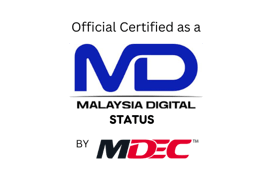Education and Governance: Building a Foundation of Integrity and Honesty
Discover how education and governance intertwine to foster a culture of integrity and honesty in our society. Explore the profound impact of values instilled from home and the role they play in shaping responsible citizens and ethical leaders. Join us as we delve into the lessons from Japan’s education system and envision a brighter future for sustainable development.
BLOGENGLISH
9/20/20243 min read

The Role of Education in Sustainable Development
Education serves as a cornerstone of the Sustainable Development Goals (SDGs), particularly Goal 4, which seeks to ensure inclusive and equitable quality education and promote lifelong learning opportunities for all. It shapes individual futures and underpins the very fabric of society, equipping individuals with the skills and knowledge necessary to contribute positively to their communities while fostering a culture of integrity, honesty, and responsibility.
However, the impact of education extends beyond mere academic learning; it encompasses the values and behaviors instilled in students. To achieve sustainable development, it is essential to explore how education can cultivate integrity and honesty, beginning at the familial level.
The Home Environment: A Crucial Foundation
The attitudes and behaviors children adopt are often rooted in their home environment. Parents and caregivers play a vital role in modeling integrity and honesty. Research indicates that children raised in environments where these values are prioritized are more likely to carry them into adulthood.
For instance, discussions around honesty in everyday life—whether related to completing chores, managing finances, or engaging with peers—are instrumental in instilling these principles. When parents consistently reinforce the importance of truthfulness and responsibility, they lay a foundation that supports personal success and contributes to a more honest society.
Education and Governance: A Synergistic Relationship
Effective governance is essential for promoting quality education. It ensures that educational policies are equitable, resources are allocated fairly, and schools operate in an environment characterized by transparency and accountability. When governance systems prioritize education, they create opportunities for all children to learn and develop the values fundamental to sustainable development.
Japan exemplifies how governance can positively influence educational outcomes. The Japanese education system emphasizes not only academic excellence but also the cultivation of moral values. The curriculum includes ethical education, where students learn about integrity, responsibility, and the importance of contributing to society. This integrated approach reinforces the notion that education is not solely about knowledge acquisition but also about character development.
Integrity and Behavior: Lessons from Japanese Education
Japan's commitment to fostering integrity through education is evident in its school culture. For example, students participate in daily cleaning routines, known as “soji,” where they clean their classrooms and school facilities. This practice instills respect for the environment, responsibility, and teamwork, reinforcing the idea that everyone plays a role in maintaining a clean and functional community.
Additionally, Japanese education promotes group activities that require cooperation and collective problem-solving. By working together, students learn the significance of honesty, trust, and mutual respect. These experiences not only build character but also prepare students to engage in society with integrity.
Positive Impact on the Nation
Enhanced Civic Engagement: An education system rooted in integrity cultivates responsible citizens who actively engage in their communities, leading to increased civic participation, volunteerism, and social initiatives.
Economic Growth: A population educated in ethical principles tends to make informed economic decisions, fostering innovation, entrepreneurship, and sustainable practices that drive economic growth and stability.
Social Cohesion: When integrity and honesty are valued, communities become more cohesive. Trust among citizens fosters collaboration, reduces conflict, and enhances social bonds, creating a more harmonious society.
Reduced Corruption: An educated populace prioritizing ethical behavior contributes to a significant reduction in corruption, promoting transparency in governance and public trust.
Negative Impact on the Nation
Erosion of Trust: If education fails to instill values of integrity, it may lead to a generation that prioritizes personal gain over communal well-being, resulting in increased social division and conflict.
Economic Consequences: A lack of integrity can foster corruption, mismanagement of resources, and unethical business practices, hampering economic growth and deterring foreign investment.
Social Disparities: When educational systems neglect inclusivity and equitable access, they exacerbate social disparities, leaving marginalized groups disadvantaged and perpetuating cycles of poverty and inequality.
Weak Governance: A poorly educated populace may lack the critical thinking skills necessary to hold leaders accountable, perpetuating ineffective governance and diminishing transparency.
The Impact of Values on Future Generations
The values instilled through education have lasting implications. Young individuals who prioritize integrity and honesty are more likely to become responsible citizens and ethical leaders, contributing to a culture of trust essential for effective governance and societal progress.
As we strive to achieve the SDGs, it is imperative to recognize the interconnectedness of education, governance, and individual behavior. Schools, families, and communities must collaborate to create environments where integrity and honesty are both taught and practiced.
Conclusion: A Collective Responsibility
To realize the SDGs related to education and governance, we must adopt a holistic approach. This involves fostering a culture of integrity that begins at home and is reinforced in schools and communities. By promoting honesty and responsible behavior, we can nurture future generations who are not only knowledgeable but also committed to ethical governance and sustainable development.
Let us collectively strive to create educational environments that cultivate integrity and honesty, ensuring a brighter future for all. Together, we can lay the foundation for a sustainable world where education empowers individuals to become ethical leaders and active contributors to society.
...
Contact us
Whether you have a request, a query, or want to work with us, use the form below to get in touch with our team.




Copyright © 2024 The Maharani Consultancy Sdn. Bhd. All rights reserved. Website powered by HOSTINGER
At The Maharani Consultancy, we leverage our deep industry knowledge and proven methods to drive business success, helping our clients thrive in competitive markets. We tailor our services to meet your specific needs, ensuring that every solution is customized for maximum impact and effectiveness.
Follow our Social Media


